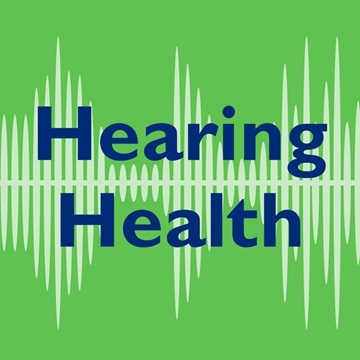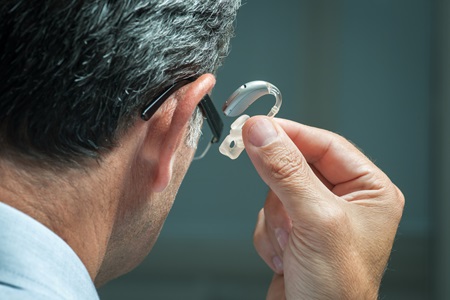Types of Hearing Loss

Hearing loss affects people of all ages and can be caused by many different factors. The three basic categories of hearing loss are sensorineural hearing loss, conductive hearing loss and mixed hearing loss. Here is what patients should know about each type.
Sensorineural Hearing Loss
This type of hearing loss occurs when the inner ear or the actual hearing nerve itself becomes damaged. This loss generally occurs when some of the hair cells within the cochlea are damaged.
Sensorineural loss is the most common type of hearing loss. It can be a result of aging, exposure to loud noise, injury, disease, certain drugs or an inherited condition. This type of hearing loss is typically not medically or surgically treatable; however, many people with this type of loss find that hearing aids can be beneficial.
Sudden Sensorineural Hearing Loss
Sudden sensorineural hearing loss may occur very suddenly or over the course of a few days. It is imperative to see an otologist (a doctor specializing in diseases of the ear) immediately. A delay in treating this condition (two or more weeks after the symptoms first begin) will decrease the chance that medications might help improve the problem.
Hearing Loss: Why Choose Johns Hopkins?

Hearing problems don’t discriminate and can affect people at any stage of life. Don’t suffer in silence with hearing loss.
Our center’s physicians are among the finest and most highly skilled otologists and neurotologists (ear, nose and throat doctors) in the world. Their expertise, coupled with the care of licensed and certified audiologists, ensures you get quality care.
Conductive Hearing Loss
This type of hearing loss occurs in the outer or middle ear where sound waves are not able to carry all the way through to the inner ear. Sound may be blocked by earwax or a foreign object located in the ear canal; the middle ear space may be impacted with fluid, infection or a bone abnormality; or the eardrum may have been injured.
In some people, conductive hearing loss may be reversed through medical or surgical intervention. Conductive hearing loss is most common in children who may have recurrent ear infections or who insert foreign objects into their ear canal.
Mixed Hearing Loss
Sometimes people can have a combination of both sensorineural and conductive hearing loss. They may have a sensorineural hearing loss and then develop a conductive component in addition.
Hearing testing is critical for discovering exactly what type of hearing loss you have, and will help determine the hearing care solution that is right for you. Hearing aids are available in many sizes, styles and technologies; there are also many alternatives to hearing aids.
Frequently Asked Questions About Hearing Aids

If you are considering a hearing aid, you are bound to have questions. Here are some answers, provided by Johns Hopkins experts.
Hearing Loss in Adults
People over age 50 may experience gradual hearing loss over the years due to age-related changes in the ear or auditory nerve. The medical term for age-related hearing loss is presbycusis. Having presbycusis may make it hard for a person to tolerate loud sounds or to hear what others are saying.
Other causes of hearing loss in adults include:
-
Loud noises
-
Heredity
-
Infection
-
Illness
-
Certain prescription drugs
-
Circulatory problems such as high blood pressure
Baseline Hearing Test
Most adults received their last hearing test when they were in grade school. It is a good idea to have your hearing checked when you are an adult at least once during your annual physical. This test becomes your baseline test, so that later, if you do suffer hearing loss, your audiologist can compare your current hearing to your baseline to assess the severity of your hearing loss so you can be treated appropriately.
What You Need to Know Over-the-Counter Hearing Aids: Frequently Asked Questions

The Food and Drug Administration’s recent rule has expanded access to hearing aids by creating a new category of hearing aids: over-the-counter (OTC) hearing aids. Here are the answers to some of the most commonly asked questions about over-the-counter hearing aids.





